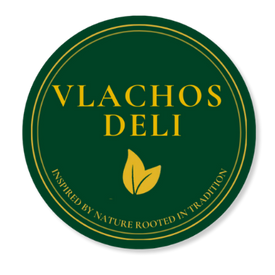Through my modest experience practicing acupuncture on horses, I’ve begun to observe some truly remarkable changes—especially when caretakers incorporate herbs into the animals’ daily routines, like infusing their drinking water with local plants.
Living in Greece, a land rich in medicinal herbs, it feels almost second nature to turn to nature for healing—not just for people, but for animals too.
Just the other day, a woman asked me to prepare some St. John’s Wort oil for her dog, who was suffering from hair loss—following her veterinarian’s advice. These small stories sparked a deeper curiosity in me. My love for Greek herbs, combined with these hands-on observations, inspired me to dive into the world of herbal remedies for animals. Here's what I’ve discovered so far.

Good Herbs for Horses: Natural Support from the Mediterranean and Beyond
Herbs have long been used in animal care, from ancient warhorses to modern equestrian athletes and companions. As the interest in natural and holistic equine care grows, many horse owners are turning to herbal remedies for immune support, digestion, muscle recovery, stress relief, and more. In this article, we explore some of the most beneficial herbs for horses, with a special focus on native Greek and Mediterranean plants. Backed by scientific research and traditional knowledge, these herbs offer a safe and effective way to enhance your horse’s wellbeing.
Why Use Herbs for Horses?
Herbs can complement conventional veterinary care by offering:
- Natural anti-inflammatory and antibacterial properties
- Digestive support
- Calming and anti-anxiety effects
- Respiratory health support
- Skin and coat benefits
However, it’s essential to use herbs under veterinary supervision. Dosages for equine use vary greatly from human applications, and some herbs may be contraindicated depending on the horse’s condition.
Top Greek and Mediterranean Herbs for Horses
1. Thyme (Thymus vulgaris)
- Key Benefits: Antiseptic, respiratory support, immune boosting
- Usage: Add dried thyme to a steam bucket for inhalation, or infuse in water for topical wound rinsing
- Science: Contains thymol, a powerful antimicrobial compound (Sakkas et al., 2017)
2. Sage (Salvia officinalis)
- Key Benefits: Anti-inflammatory, digestive aid, cognitive support
- Usage: Brewed as tea or used as a poultice for minor skin issues
- Notes: Rich in vitamin K and antioxidants, sage has calming properties and supports circulation.
3. Chamomile (Matricaria chamomilla)
- Key Benefits: Stress reduction, digestive relief
- Usage: Brew into a strong tea and pour into feed or water bucket
- Science: Contains apigenin, known for its sedative and anti-spasmodic effects (Srivastava et al., 2010)
4. Oregano (Origanum vulgare)
- Key Benefits: Antibacterial, antifungal, immune system boost
- Usage: Dried and crushed oregano can be added in tiny amounts to feed or used in natural sprays
- Notes: A powerhouse herb with strong antioxidant effects
5. Fennel (Foeniculum vulgare)
- Key Benefits: Carminative, digestive support, lactation support
- Usage: Tea or seeds can be mixed into feed
- Traditional Use: Used in Greek folk medicine for bloating and colic
6. Marjoram (Origanum majorana)
- Key Benefits: Mild pain relief, muscle relaxation, antispasmodic
- Usage: Infused oil for massage or tea for mild internal use
How to Use Herbs for Horses Safely
- Consult a Veterinarian or Equine Herbalist
- Especially if your horse is on medication or has health issues
- Use High-Quality, Organic Herbs
- Avoid contamination with pesticides or molds
- Start with Small Doses
- Monitor for reactions before using regularly
- Choose the Right Form
- Dried herbs, tinctures, teas, or infused oils are most common
- Don’t Mix Too Many Herbs
- Use one or two at a time to monitor effectiveness
What the Research Says
Scientific validation of herbal treatments for horses is growing. For instance:
- A study published in the Journal of Equine Veterinary Science found that chamomile and valerian significantly reduced signs of anxiety in horses (E. Ramey et al., 2016).
- Oregano oil was found to have antibacterial effects on common equine pathogens in a study from the University of Thessaloniki, Greece.
Still, evidence is limited compared to human studies, so ongoing research and cautious application are key.
Real-Life Application: Greek Herbs in the Field
In Greece, many horse caretakers are rediscovering the power of native herbs. Infusing water with thyme or chamomile, rubbing marjoram oil into sore muscles, or adding fennel to feed for digestion is not uncommon in traditional stables. These methods are gaining popularity not just for being effective, but also for being part of a cultural heritage of caring for animals with respect and nature.
Caution: Not All Herbs Are Safe
Avoid these common herbs which can be toxic or unsafe for horses:
- St. John’s Wort (photosensitivity)
- Comfrey (liver toxicity)
- Pennyroyal (highly toxic)
Final Thoughts
Herbs like thyme, sage, chamomile, and fennel not only offer significant health benefits for horses, but also connect modern equine care to ancient traditions. By integrating these natural remedies responsibly, horse owners can enhance their animals’ wellbeing while honoring a long history of herbal wisdom.
Vlachou Panagiota
Certified Beekeeper | Specializing in Traditional Beekeeping & Natural Wellness Methods
Trained in Traditional Acupuncture – Academy of Traditional & Chinese Medicine
Member of the Beekeepers’ Association of Attica-Greece
Disclaimer: This article is for educational purposes only and does not substitute for professional veterinary advice. Always consult a qualified veterinarian before introducing herbs to your horse's care plan.

